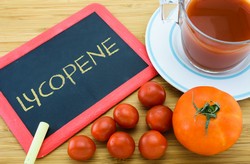Carotenoids – eating to live
Dietary carotenoids such as lycopene and beta-carotene that are used as colorants and food additives have been found to promote heart health. However, a major issue with such products is their instability on the shelf and upon digestion. The recently completed project COLORSPORE successfully produced gastric-stable carotenoid preparations from Bacillus bacterial strains with higher antioxidant activity and bioavailability than common dietary carotenoids. To facilitate further development and commercialisation of such bacteria-derived carotenoids, the EU-funded CARODEL(opens in new window) (Use of microorganisms for carotenoids delivery: next generation of probiotics for cardiovascular disease) project was initiated. At the beginning of the project, researchers produced different formulations of carotenoids and the carotenoid-producing Bacillus strains. Bacillus spores are particularly attractive for functional reasons as they can pass through the gastric barrier without loss of function and are stable during many food processing steps. The team compared the bioavailability and activity of the spores and the vegetative cells of the Bacillus strain using in vitro gut models and in vivo animal studies. In vitro and in vivo toxicity tests revealed no immediate risk for human consumption from this strain. CARODEL selected an optimised formulation of the Bacillus spores for the human clinical trial as it had the best bioavailability profile. Results demonstrated an efficient oral delivery of highly active carotenoids in the form of Bacillus spores that had probiotic effects on gut microbiota, metabolism and beyond. The delivery strategy was validated in human studies. The scientific evidence gathered through this study has provided proof-of-concept, facilitating the commercial exploitation of this Bacillus carotenoid product. Importantly, production through microbial fermentation is more sustainable and affordable than other similar products derived from alternative natural sources.







